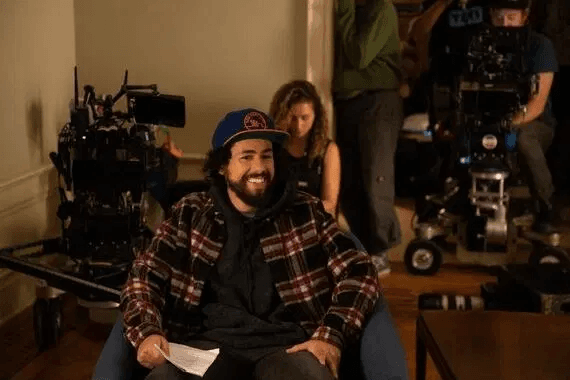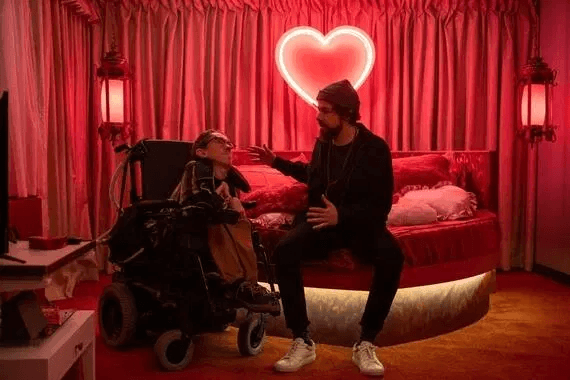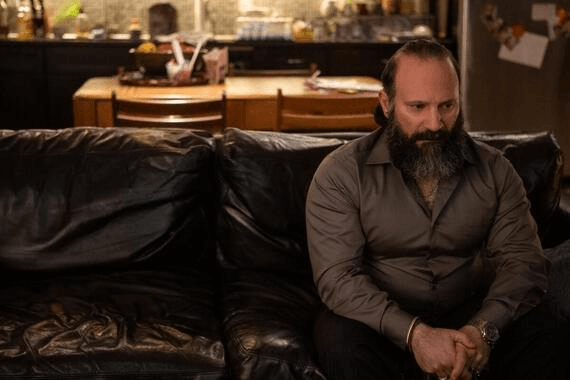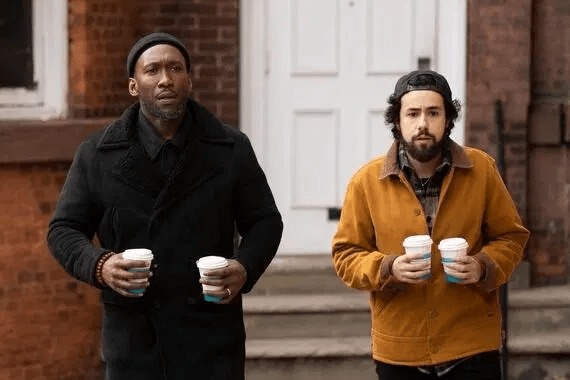The Cast of Hulu’s “Ramy” Tell Behind-the-Scenes Stories From Season 2 And Look Ahead at a Possible 3rd Season
The Paley Center celebrated the second season of Hulu’s Ramy with a virtual conversation with four stars of the show, including series creator, writer, director, and star Ramy Youssef, who summed up what the show means. “It’s about someone who is trying to be the higher version of themselves,” Ramy explained. “It’s a show about faith in a way that I think is really just about somebody dealing with who they want to be and who they actually are. And I think that that gap is something that is experienced through faith and through a lot of different things. In this show, it’s with a Muslim family, but I think it’s the kind of gap that anyone is going through. He is figuring himself out, which feels like the plot of almost anything, but we obviously get really specific with how he’s doing that.”
The second season was released on May 29th in a world that had drastically changed since filming wrapped and Ramy admitted to being nervous about the release. “We deal with some heavier stuff this season and we’re meeting people in intimate places. And I think, right now, everyone is certainly dealing with whatever is going on in their individual place. So part of me was like, awe, man, are people trying to watch TV to just turn their brains off? Because our show is not that. Or are people trying to watch the show to try and connect with that place and I think it’s been more of the latter, which has been really cool. I always think that our show, the characters have so many questions and especially the Ramy character. He’s trying to answer these questions he has and I always hoped that our show brings people closer to their questions. And I think that this is one of those times, if there’s ever been one in our lifetimes, if we can be part of that in any way, that’s where it gets exciting.”
Part of the conversation dealt with the fact that this is really the only show in western media about an Arabic speaking Muslim family, but there are many nationalities under the Muslim umbrella, meaning Ramy can’t satisfy all of the viewers waiting to see their faith and culture represented on screen. The show also seeks to tell very human stories that haven’t been explored as much. Ramy Youssef’s longtime friend Steve Way plays Steve on the show and this season, there’s a memorable moment with the two friends in Atlantic City. “I was really excited to do that episode because I’d never seen that before,” Steve shared during the presentation. “I always tell Ramy, like, yeah, you’re changing the game for the Muslim community, but you’re really doing that for the disabled community, too. Because we can never talk about disability and sex on TV, let alone actually see something like that.”
The second season also fleshes out the character of Uncle Naseem, played by Laith Nakli, from a one-dimensional homophobic anti-sematic glutton into a very human character. “A lot of people say, oh, you’re brave, but it’s very universal, too,” Laith shared about the Uncle Nassem-centric episode this season. “While it does apply to a lot of Arab men around the world, it also applies to different cultures, even some pockets of white people. It applies to everyone, so it’s a universal thing and all the positive feedback I’m getting, it’s from across the board.” Laith went into this season knowing that he might get hate directed his way for his character’s story, but it didn’t scare him away. “I know the backlash that’s coming from it, from people in the Middle East and from people I know, but I’m okay and I’m ready to deal with it because it’s important.”
“This show gets intimate about faith and it gets intimate about sex and those are two things that get heated on any side of it,” Ramy shared. “I think even for the variety of audiences, this is a show that plays here now widely in America, but also plays widely in the Middle East, so we’re aware of, okay, there are going to be cultural sensitivities on both sides, but it’s not what you would think. There was something, even with the Uncle Naseem storyline, where we were like ‘Woah,I wonder how the backlash is going to be.’ And it’s not like the show has been out for a crazy amount of time, but so many people from all over the world have mostly been really warmed by the story and I think people are overwhelmingly excited to see the portrayal and, again, it’s going into those issues, whether it be something with Steve or with May or with Uncle Naseem, it’s trying to go into them walking a tightrope where it isn’t about us being sensational, it isn’t about us trying to change your mind. It’s just showing you this is a real place where someone is lonely and this is what happens when you’re there. And I think when that’s the end, I think it’s harder to be upset because we’re not trying to tell you what to think, it’s just you’re not going to deny that this person’s real.”
The conversation also included talk of working Oscar-winning actor Mahershala Ali, who joined the cast this season.
May: “I was intimidated at first,” explained May Calamaway, who plays Ramy’s sister Dena. “But then he was so humble and my first interaction with him was in hair and makeup and he was sitting next to me and the first thing he did after introducing himself was ask how he would say something in Arabic. And that just sort of broke the ice between us. And it was just funny being on set with him because if he ever stumbled or needed to do something again, I felt like we were all like what do you need, what do you need, fine, he needs to do it again, guys. He was amazing.”
Hulu hasn’t given them a greenlight for a third season yet, but Ramy shared his excitement for future plans. “There’s a lot to get into,” he shared. “It’s an amazing feeling to have done twenty episodes and then at the end of season two, in my mind we’re just getting started. We’ve just cracked certain things that I’m really excited to get into. Obviously, there’s a lot of redemption and confusion for the Ramy character to get through, not just in revealing himself to others, but I think to himself. I think there’s a lot that I’m excited to deconstruct and reconstruct with him in terms of why does he actually believes what he believes and I think that we’re going to really understand what his connection to faith is. And also look at the other things that are really bothering him in a deeper dive. And then I think there’s so much to explore with, obviously, we know new things about Naseem, there’s a lot that I’m really excited to get into with Dena and with Maysa. We have this palette of characters that I think are going to be affected by what Ramy has done, but also as a show, we’re going to have more real estate to really dive into other characters more and that’s something I’m really excited about. The funny joke, it’s so funny because people will write this, but I will always say my favorite episode is the one Ramy’s not even in. People will say that like they’re saying something to me and I’m like, oh, I know. It’s going to be really fun to expand some of these because, just from where I am as a writer and getting to direct a bunch of these, too, it just brings me a lot of joy. And again, when we’re talking about Ramy, it’s an ecosystem of people. It’s going to be really fun and I’m excited to dig into it.”
If you haven’t already seen it, the entire first and second seasons of Ramy are now streaming on Hulu. We hope to hear an announcement about a third season in the near future and will share news as soon as we get it. For more great content from the Paley Center, be sure to follow them on YouTube.






